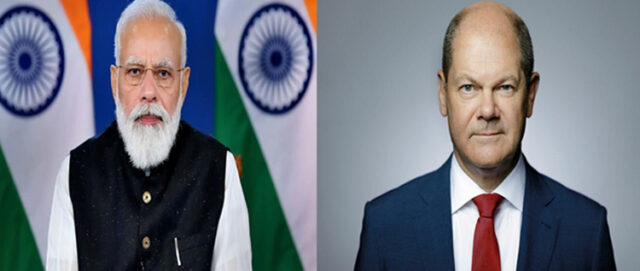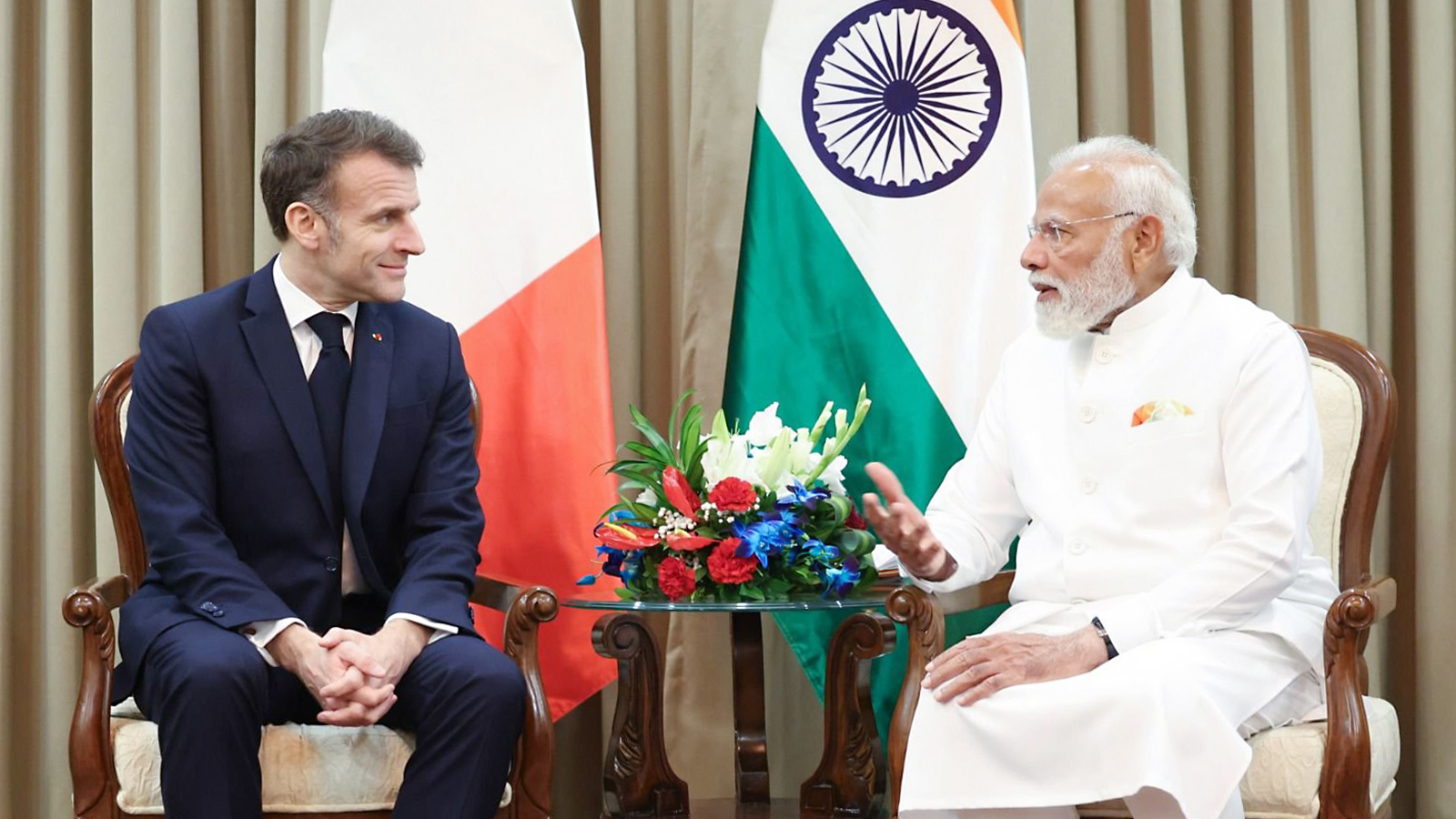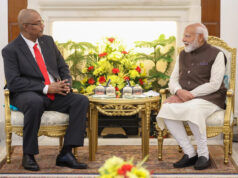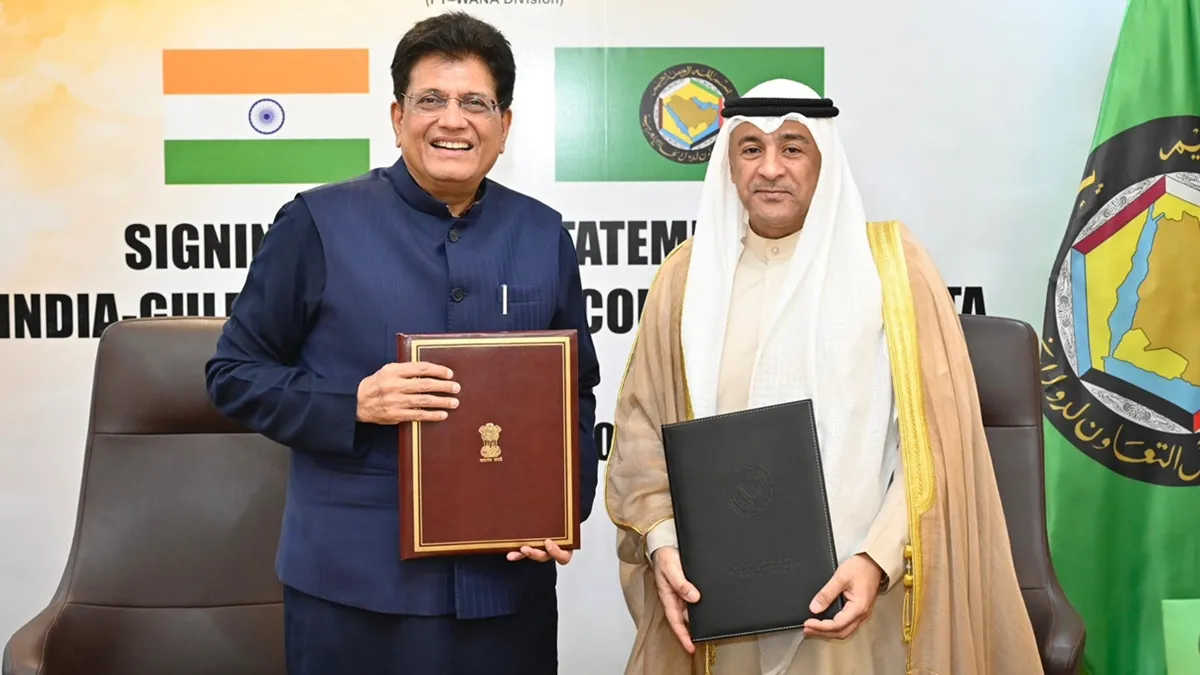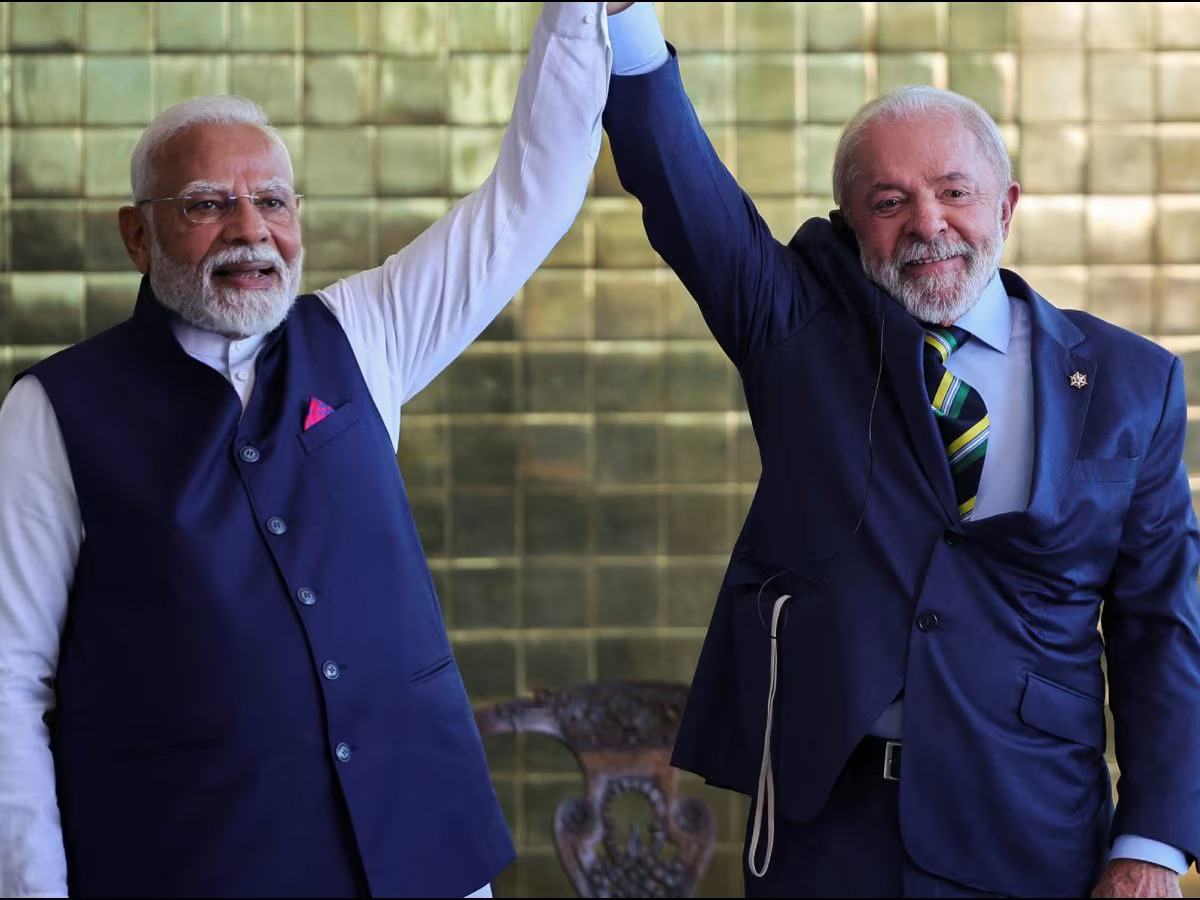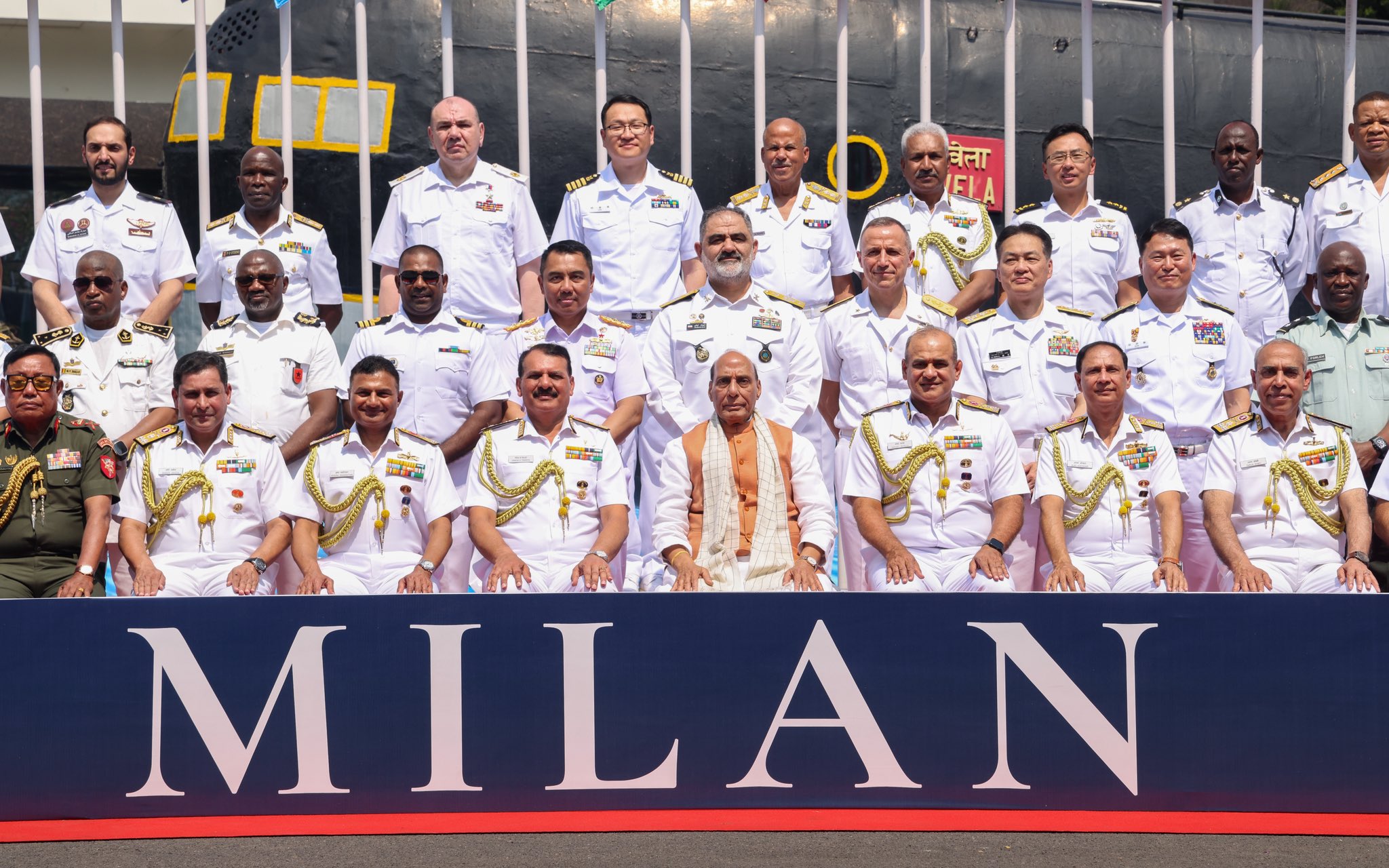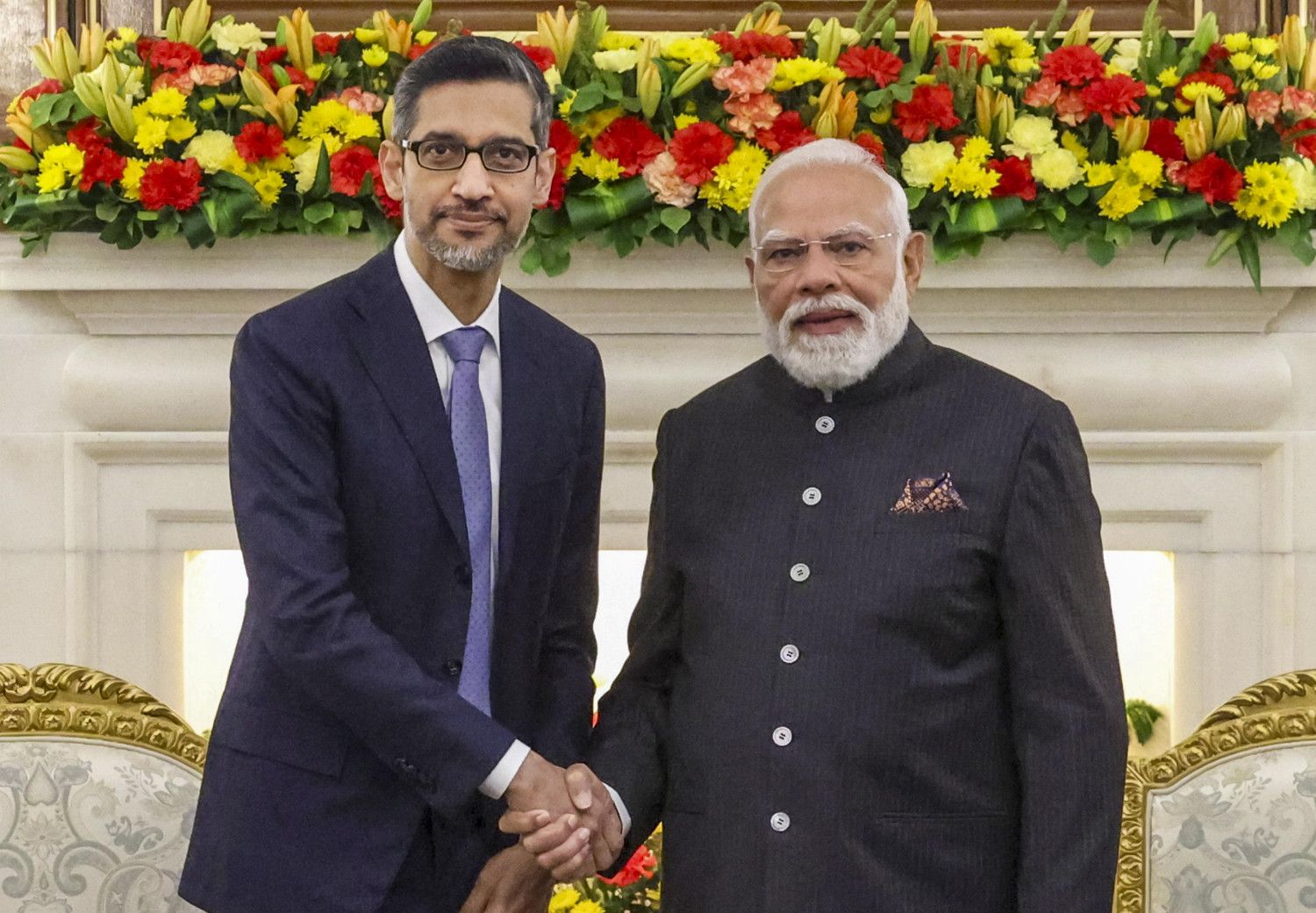India was one of the first states to recognize the Federal Republic of Germany diplomatically. Today, this relationship has developed multi-dimensionally – Germany is India’s most important trading partner within the EU and the seventh most important trading partner on a global scale.
Bilateral Relations
In 2001, both countries strengthened their relations through “Strategic Partnership”. India is also amongst the few countries with which Germany holds a high-level Inter-Governmental Consultations at the level of Heads of Governments.
These consultations are comprehensive in terms of the issue-areas covered and the particular actors targeted. There are more than 30 different bilateral consultations and dialogue formats in place that help to further build trust and stability in the relation. Several institutionalized arrangements also exist between India and Germany to discuss bilateral and global issues of interest such as Foreign Office Consultations, High Defence Committee, Indo-German Energy Forum, Indo-German Environment Forum, S&T Committee, and Joint Working Groups in various fields, including skill development, automotive, agriculture, coal, tourism, water, and waste management.
Multilaterally, India and Germany share close cooperation in the G4 where both states cooperate to strengthen the multilateral system and bring about a reform of the United Nations including an expansion of the UN Security Council. Both countries also consult each other and coordinate positions in multilateral fora including G-20 and the UN on global issues such as climate change, sustainable development, etc. There have been consultations between the two countries on regional and international issues such as UN issues, International Cyber Issues, Disarmament & Non-proliferation, Export Control, East Asia, Eurasia, Africa, etc.
Another key area of cooperation between India and Germany – is their long academic and cultural relations. Max Mueller was the first scholar of Indo-European languages to translate and publish the Upanishads and the Rigveda. The Max Mueller Institute (Goethe Institute) imparts German language training in cities across India. Also, the German interest in Indian philosophy and languages led to the setting up of the first Chair of Indology at the University of Bonn in 1818 and the Universities in Munich and Greifswald in 1824. Today, Indian students form the second largest student population in Germany, with over 25,000 students. One of the key initiatives taken during the 2019 Inter-Governmental Consultations was the Indo-German Partnership programme, which involved investments of 3.5 million euros from each country and would focus exclusively on strengthening the bilateral cooperation in the field of higher education in 2020-2024. For its part, New Delhi has funded 37 short-term rotating chairs of Indian studies in German Universities.
Economically, Germany remains a crucial trading partner for India. It is India’s largest trading partner in Europe and the seventh-largest global trading partner with a total trade of US$ 21 bn in 2020-21. Germany is also the 7th largest FDI source for India. The cumulative FDI from Germany to India since April 2000 is over US$ 13.19 billion. In 2018-19, German FDI in India was US$ 886 million and in 2019-20, it was US$ 488 million. For 2020-21, German FDI in India has been US$ 667 million. There are more than 1,700 German companies in India. German investments in India have been mainly in sectors of transportation, electrical equipment, metallurgical industries, services sector (particularly insurance), chemicals, construction activity, trading, and automobiles. In terms of Indian investment in Germany, the total investment from 1995 onwards is over US$ 7 billion. More than 213 Indian companies are operating in Germany, and are involved in Trading, manufacturing, R&D innovation, and services. Indian companies have invested in Germany mainly through Mergers and Acquisitions (M&A). Investments are mostly in IT, automotive, pharmacy, biotech, and manufacturing. Various programs have been set up in order to facilitate the realization of business opportunities in India such as the Fast-Track-System for German companies or the Make-in-India Mittelstand-Program for German SMEs.
Outlook towards India under the New German Coalition
The German elections of September 2021 resulted in the formation of a tripartite coalition for the first time by the Social Democrats, Greens, and Free Democrats. The coalition marks the beginning of a new era in German politics, as Angela Merkel stepped down from her office after 16 years of being the Chancellor. The three parties finalised a deal for governing the country in a coalition document which was released on 24 November 2021. The coalition document mentions India, a few times, highlighting the growing importance of the country for German foreign policy. It emphasises the need to strengthen the strategic partnership. The coalition agreement includes an exhaustive section on the Indo-Pacific and the growing importance of the region for German foreign policy. The agreement mentions the importance of an “intensive dialogue on peace and security in the Indo-Pacific” and the need of collaborating with like-minded partners. Within the German Indo-Pacific guidelines released in 2020, India was mentioned for the enhancement of engagement and fulfilment of objectives. The coalition agreement appears to be an extension of the guidelines for the region and the increased realisation in the German strategic circle of the importance of the Indo-Pacific and the role India plays in the region.
What could be the Priority Areas?
Another area for possible Indo-German cooperation is infrastructure. India is one of the few countries which have consciously decided to stay out of BRI. Both Germany and India could jointly pursue routes to closer EU-India connectivity, and do this through clean energy projects, sister cities, smart cities projects, etc. – ventures that both sides have an interest in. The growing concerns within Germany about unreliable supply chains, especially in key sectors such as 5G, life-saving drugs, equitable distribution of vaccines, etc. find great resonance in India and offer enormous potential for further cooperation. Also, as Germany is keen to implement connectivity projects, the EU-India connectivity partnership in this regard is a step in the right direction. The EU-India Connectivity Partnership stresses the promotion of a “transparent, viable, inclusive, sustainable, comprehensive, and rules-based approach to connectivity.” The outcome flows from India-EU’s emphasis on the promotion of sustainable connectivity and transparency in the investments. Connectivity was also identified as an area of high potential for cooperation between the two partners in the EU’s 2018 strategy on India and the EU’s strategy document titled “Connecting Europe and Asia: Building Blocks for an EU Strategy” released in 2018.
Trade remains the defining feature of India-Germany bilateral relations. While the fundamentals of the economic relations between India and Germany remain strong, the momentum is right to make them truly multi-dimensional. Pursuing the Free Trade Agreement with India will be important. Such a deal would be an important signal to India and others in the region. While there are some positive signs with the Indian government and the European Commission announcing their intentions to resume the negotiations on the FTA, which has been stalled since 2013. However, with India’s role as a major regional and global player set to continue to expand in the coming years, a strengthened partnership and the conclusion of FTA would offer Europe new and diversified opportunities for cooperation. Germany, under the new leadership, could spearhead such efforts from the European side.
Conclusion
India and Germany gain from cooperation across issue areas and both have similar interests and shared values across a wide variety of issues. The India-Germany relations have come a long way since 2000. India-EU ties in the past few years have become strategic with discussions taking place on issues beyond economics. India-EU has had more than 30 dialogue mechanisms on issues ranging from counter-terrorism, cyber-security, science and technology, climate change and environment, foreign policy, among others. There is an increasing push in Berlin to emerge as a geopolitical actor and India is a natural partner in many respects. At the same time, India is also emerging as a credible player beyond South Asia and the Indian Ocean, which has led the EU to look beyond its periphery. The idea, now, should be to move beyond the joint statements towards that of joint action. The new coalition has already made strong reference to India and the importance it attaches to New Delhi in its foreign policy calculus – it is the right time for both to re-define their partnership. This is so because, how India and Germany cooperate and collaborate, bilaterally as well as multilaterally, that defines their global aspirations and standing.

